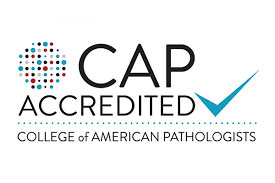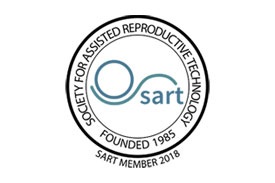Facing a cancer diagnosis may make you wonder how treatment could affect your ability to have children in the future.
The fertility team at the UHealth Center for Reproductive Medicine works to preserve your eggs, sperm, embryos, and other reproductive tissues, so your chances of having children in the future are maximized.
Our program provides individualized consultation and education on how your oncology treatment plan may impact your future fertility and helps to choose the best possible option.
Who Is a Candidate?
Consider oncofertility consultation and services if:
You are undergoing chemotherapy, which can affect future female fertility in the following ways:
- May cause early-onset menopause for women
- May lead to problems with a woman getting pregnant
- In men, chemotherapy can affect sperm production.
You are undergoing radiation therapy, which can cause permanent damage to the uterus and/or ovaries in females. Radiation therapy can also affect the production of sperm in males.
You are undergoing targeted therapies or hormone therapies, which may require you not to get pregnant for a number of years.
You have undergone cancer treatment in the past. All cancer carries some risk of recurrence, and future cancer surgery or further chemotherapy or radiation may harm your fertility.
Meet Your Multidisciplinary Team
With over two decades of combined experience in this complex field, our specialists are pioneers in treating a broad range of disorders that affect fertility in both women and men. One in eight couples experience infertility — or the inability to conceive a child — and the reasons for infertility are many and varied. Call 305-243-8642 today to schedule your appointment.
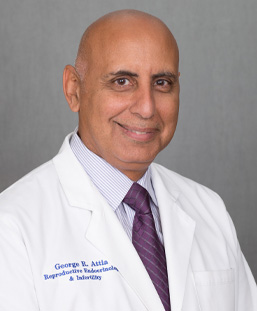
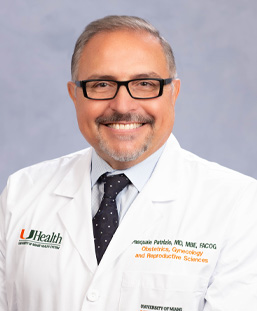
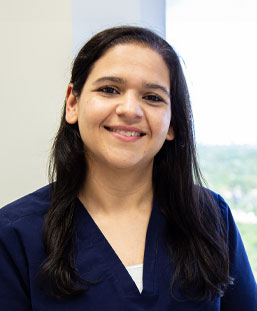
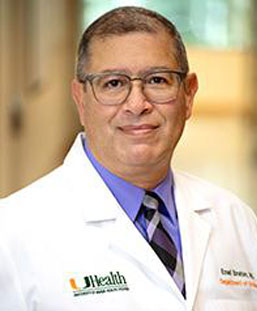
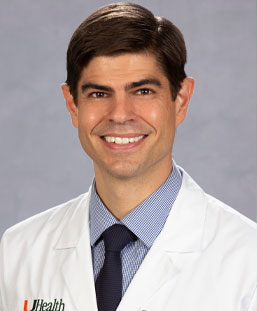
During Your Oncofertility Treatment
At your first fertility preservation appointment, we will:
- Ask you questions about your cancer type and the protocol for treatment.
- Discuss the possibility of freezing eggs, embryos, or ovarian tissue for females and sperm for males.
- Make recommendations based on your needs and your future reproductive goals.
- Review other options available, such as medications or specialized treatments that can help preserve your fertility for the future.
What to Expect for Female Oncofertility
Egg or Embryo Cryopreservation
A female undergoing cancer treatment may choose to freeze her eggs or embryos during a process known as cryopreservation. To begin this 14-day process, your oncofertility specialist will prescribe an injectable and/or oral (by mouth) medication that stimulates your ovaries to produce multiple eggs. You’ll need to use the medication exactly as prescribed, and you will likely use it for about two weeks. During this time, your doctor will closely monitor you with blood work and ultrasound imaging (about 3-4 morning visits at our clinic).
After about 10-12 days of ovarian stimulation you will return to our office and we will perform a procedure to retrieve the eggs (egg harvesting). During egg harvesting, your doctor places an ultrasound probe into your vagina and uses specialized equipment to remove the eggs from your ovaries. Egg harvesting only takes 10 to 20 minutes in total, and you will be sedated (pain-free) by an anesthesiologist.
If you have a partner, we can fertilize the eggs with sperm from your partner and then preserve the resulting embryos. The eggs or embryos are frozen and then stored in liquid nitrogen.
Learn more about egg freezing.
Ovarian Tissue Freezing
For women that do not have time to undergo egg or embryo freezing, and if the cancer has not spread to the ovaries, it is possible to have a surgery called laparoscopy.
This procedure harvests ovarian tissue that can be frozen and then transplanted back at a later time if necessary. This procedure can also be offered to younger pre-pubertal girls.
Ovarian Trans-Position
In addition to egg or embryo cryopreservation described above, females receiving radiation therapy to the pelvis may choose to have a procedure called ovarian trans-position. This procedure moves your ovaries out of the radiation area to reduce your risk of future infertility.
What to Expect for Male Oncofertility
A male undergoing cancer treatment may choose to freeze his sperm and/or testicular tissue using cryopreservation. Once you get an appointment, you will collect sperm by self-stimulation. Some men are unable or unwilling to masturbate. In those cases, you can use a special condom to collect sperm during intercourse.
Lab technicians then mix the semen (containing sperm) with protective liquids to prevent damage during the freezing and thawing process. The mixture is then frozen and stored for later use.
Sperm can be stored using cryopreservation for up to decades with no concerns of degradation. Frozen/thawed sperm can then be used later for insemination or in-vitro fertilization.
Treatment Costs
Our goal is to help you achieve your dreams of having a family in the future, while making your fertility preservation treatment affordable. Prior to your first visit with us, we will verify your insurance fertility benefits. Insurance can help cover initial consultations and diagnostic exams; however, it is not common for insurance to cover treatment.
You will likely need to prepare to pay out-of-pocket for fertility preservation services, including ongoing storage and maintenance fees and future fertility services. We offer self-pay and financing options to make your fertility treatments accessible in the case your insurance does not cover oncofertility services.
Resources to Support Treatment Costs
The Livestrong Foundation can help with the cost of medication for egg or embryo freezing through their partnership with the biotechnology company EMD Serono. The Livestrong Foundation can also help with post-cancer treatment, fresh in-vitro fertilization (IVF), and frozen IVF transfers.
The Livestrong Foundation can also help male cancer patients with fertility treatment for their partner.
Please note:
- If you do not qualify for Livestrong, you can still apply for pharmacy discounts that can save you 15-50% on some medications (depending on your income).
- Financial institutions specializing in fertility, such as The Lending Club, can assist you with loans based on your credit.
Why Choose Us?
A comprehensive approach to fertility. Our team of fertility specialists, acupuncturists, and doctors with advanced expertise in polycystic ovarian syndrome (PCOS), thyroid disorders, endometriosis, and hormonal imbalances offers complete care to ensure the health of you and your baby.
Academic medical center expertise. As part of the nationally-recognized Miller School of Medicine, we’re on the leading edge of medical advancements. That means you receive the most sophisticated testing and the latest fertility treatments available.
High pregnancy rates. We have some of the highest pregnancy rates in the country – not just South Florida. We’ve helped couples with even the greatest challenges begin a family. You work with a team that’s known for success.
Affordable fertility care. We offer cost-effective treatments and make the process as accessible as possible. We make sure you understand all your options and have the information you need to make informed decisions.
